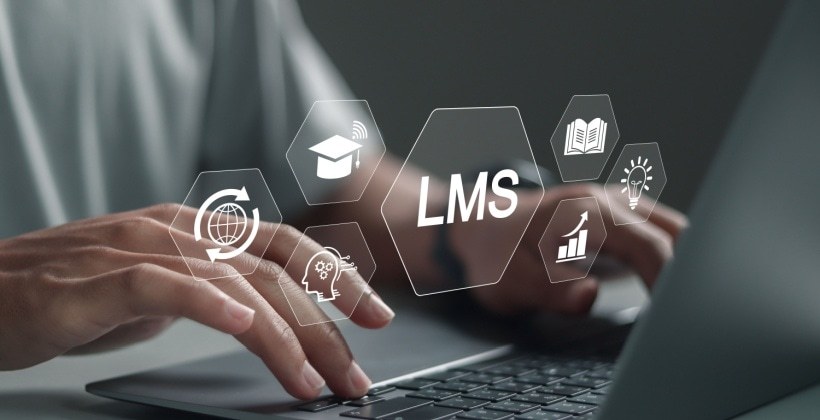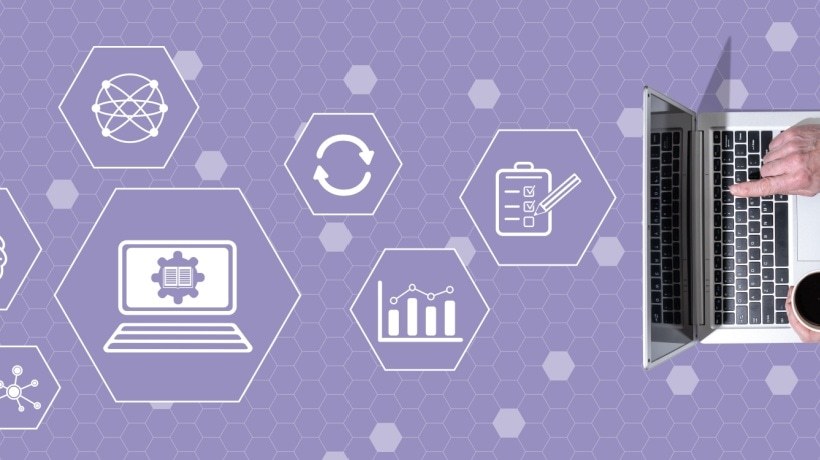What Will The Future Of LMS Be?
If you practice eLearning in your educational facility or organization, you know the importance of an LMS firsthand. It's the heart of every online learning program, as it helps to streamline and optimize the learning experience for both instructors and learners. Since technology is rapidly evolving, LMSs will inevitably do the same. Researching the future of LMS can help us know what to expect in terms of technological advancements so we can be ready to accept them and adapt accordingly. So, let's gaze into the crystal ball and see what tomorrow might bring in the world of LMSs.
3 Emerging Technologies In LMS
Artificial Intelligence And Machine Learning
AI and ML algorithms can analyze large amounts of user data to create personalized content and learning paths for each learner. This way, the LMS platform adapts the lessons' content, pace, and difficulty level according to someone's individual needs. LMSs powered by AI can also help instructors and educators by automatically grading assessments and quizzes and providing immediate feedback to learners. In addition, AI can provide content recommendations relevant to a learner's performance and preferences to make the learning process more customized. Therefore, you can choose an AI-powered LMS to increase learner engagement and achieve better results.
Virtual And Augmented Reality
VR and AR technologies create immersive learning environments in which the learners can experience courses through simulations of real-world scenarios. So, if you decide to leverage those technologies, you can implement them in your LMS to provide a safe environment where learners can practice what they've learned. This is particularly useful for training in the medical field or dangerous professions that require heavy machinery operations. Similarly, schools can organize virtual field trips to places they can't visit in real life due to budget or time limitations. Immersive technologies also promote collaborative learning since learners interact with each other in virtual environments, helping each other and sharing their thoughts.
Mobile Learning And Microlearning
The extended use of smartphones has made it necessary for LMSs to deliver content optimized for mobile devices. Multiple LMSs provide native apps so learners can access the learning materials anytime from anywhere. The mobile-responsive design fosters on-the-go courses, which can also be bite-sized for increased convenience. These microlearning lessons typically last up to 15 minutes and can include short videos, quizzes, and other interactive multimedia. Microlearning through mobile LMSs is gaining popularity since it accommodates learners' busy schedules.
Predictions About The Future Of LMS
Social Learning
Since social learning and collaboration methods are picking up steam, LMSs will start incorporating more social features that will allow educators and learners to work together. LMSs have already started to allow integration with social media platforms. Features like discussion forums, chat rooms, and messaging apps help learners interact with each other, assist their peers, and exchange opinions in real time. Some eLearning programs also provide collaborative resources in the form of wikis and project management. Those involve learners working together on projects and creating libraries to share documents and other valuable user-generated resources. This aspect of LMSs will help users build communities and connect with others who have similar learning interests and goals.
Gamification And Game-Based Learning
Inserting gamification elements and games into your courses can make the learning experience more interactive and engaging. For example, you can add challenges, quests, levels, and leaderboards to create a sense of adventure and competition, motivating learners to perform better. However, games aren't all about fun; they can also help learners develop problem-solving skills. Serious games are an excellent tool for hands-on experience in fields where simulations are needed, like medicine or other sciences. For instance, medical students can engage in simulated surgical procedures through games, and chemistry students can experiment in virtual labs.
Benefits Of New Technologies In LMSs
Better Knowledge Retention
Since future LMSs will leverage user data more extensively, they'll be able to provide learners with module recommendations that fit their needs. Learners will have access to content that addresses their knowledge gaps, performance, and pace. Additionally, they'll be provided with resources that are relevant to their learning paths. This process will make their experience more effective and help them retain knowledge since they'll have the chance to review the learning material as often as they want.
Flexibility
The focus of LMSs and eLearning will continue to shift towards flexibility. More and more people will prefer mobile learning and short modules that can easily fit their busy schedules and can be accessed from a variety of platforms. This will eliminate geographical and equipment barriers since people will learn from anywhere and need only their mobile devices.
Improved Analytics
AI and ML will allow educators to manage administrative tasks more quickly. This will decrease their workload and let them work on instructional projects. This is because analytics tools can offer detailed insights about all sorts of user data, from performance to completion rates, allowing educators to assess learners almost automatically. They can also leverage the improved analytics tools to improve their teaching strategy and offer more meaningful support to their learners.
Challenges Of Future Trends
Cost
Not every institution or organization can afford technologies like VR and AR. Similarly, there are difficulties with acquiring software and hardware for AI initiatives. Plus, if the number of learners increases, you need to make sure to purchase an LMS that supports that. This way, you won't have to purchase additional resources that will bring you over budget.
Privacy And Security
Every platform that deals with user data should provide security and privacy and comply with regulatory laws concerning personal information. You need to make certain that your LMS can offer data encryption. Other security measures will also be required to protect you from data breaches or other related dangers. Overall, you should always disclose to learners how you're using their information and ask for their permission to do so.
Training And Support
To successfully operate an LMS and achieve the optimum learning experience, you need to train instructors and learners on how to use it. This is especially important when new features are introduced. However, learners also need support in using the platforms. They should be provided with training materials, like tutorials and guides, but also be presented with user-friendly software to simplify their learning process.
Conclusion
Emerging technologies focus on optimizing the learning experience and helping educators support learners. Although the future of Learning Management Systems seems exciting and can shape the way people learn online, there are many things that instructors and professionals need to consider. Overall, current and upcoming trends are sure to promote more successful learning environments that are personalized and easier to scale.









